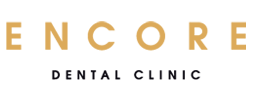What does preventive dentistry do?
In the first place, preventive dentistry reduces dental problems. Whenever you reduce dental problems, you also reduce your cost of care and improve your overall health. Therefore, when learning that tooth decay and gum disease are the two leading causes of tooth loss, then using preventive dentistry to reduce dental problems is essential.
What are types of preventive dentistry?
When you hear preventive dentistry, correspondingly think of periodic oral exams, X-rays, dental cleanings, sealants, and fluoride treatments. Don’t overlook the value of proper brushing and flossing to prevent dental issues.
What is at-home preventive dentistry?
By and large, brushing your teeth every day is the number one at-home preventive dentistry technique. Additionally, use ADA-approved fluoride toothpaste. Finally, replace your toothbrushes three to four times per year or as the bristles start to fray.
Preventive dentistry strategies:
The first thing to remember is that a good dentist will help you understand how to keep your mouth healthy. With this in mind, let’s review a few preventive dentistry strategies.
At-home oral care:
As long as you brush and floss at home twice a day, you will considerably reduce dental plaque. In detail, dental plaque is a film-like substance that forms on your teeth, leading to tartar buildup. For this reason, it’s important to brush and floss daily. In other words, plaque leads to tartar buildup, which can cause tooth decay and lead to gum disease.
Fluoride use:
We know that fluoride strengthens teeth and prevents tooth decay; as a result, dentists provide fluoride treatments when needed. You can benefit from fluoride in some municipalities by drinking tap water. In addition, dentists recommend using fluoride toothpaste and rinses as an easy way to maintain a healthy mouth.
Diet and oral health:
A balanced diet is one of the best ways to maintain a healthy mouth. Therefore, avoid foods and drinks with sugars and carbohydrates that feed on the bacteria that produce dental plaque and acid attacks. In addition, when changing your diet, consider eating more calcium to decrease your risk of developing gum disease and jaw deterioration.
Regular dental checkups:
It’s important to realize that your dentist is your greatest ally in maintaining healthy teeth and gums. For example, many dental issues are painless at first; as a result, you may not be aware of problems until there is significant damage. With this in mind, a dental visit every six months is ideal. Additionally, your dentist should be performing oral cancer screenings to check for signs of abnormal dental issues. Finally, regular dental visits are essential to track development and growth for children.
Dental cleanings
Another great tool to keep your mouth healthy and disease-free is dental cleanings. Dental cleanings, for example, remove harmful plaque, tartar, freshen your breath, and can whiten your teeth. Regular cleanings are also helpful because your dentist will examine your mouth for tooth decay.
Dental X-rays:
Generally speaking, it’s important to take x-rays of your mouth as another way to uncover dental issues. When taking a dental x-ray, the dentist can look for problems hard to find with the naked eye.
Mouthguards:
It’s important to realize that clenching and grinding (Bruxism) can wear down the enamel of your teeth. This unfortunate habit makes your teeth more susceptible to cavities. Bruxism may also lead to a sore jaw or bone deterioration. The benefits of wearing a custom-made nightguard include reducing the effects of bruxism. In addition, wearing a custom sports mouthguard can protect against broken teeth.
Bite adjustment:
Chiefly, the benefit of a bite adjustment is proper bite alignment and eliminating irregular pressure on one side of the mouth. For example, your upper teeth should fit slightly over your lower tee h. s a result, the points of your molars should align with the grooves of the opposite mol r. n addition, a lousy bite can impair speaking and result in a sore jaw or bone deterioration. For these reasons, adjusting your bite leads to a healthier mouth and a better smile.
Sealants:
Dental sealants give teeth another layer of protection from dental issues. Dental sealants are thin composite coatings designed to protect your teeth from decay. Usually, sealants are an excellent option for children or people with deep grooves in their teeth. Also, to point out that teeth are easier to clean when sealants are applied.
Reduce dental problems with preventive dentistry
In conclusion, it’s vital to understand that preventive dentistry does pay huge dividends. As you get older, for example, living life without the hassle of false teeth is terrific. Given these points, ask your dentist about preventative dentistry today!



